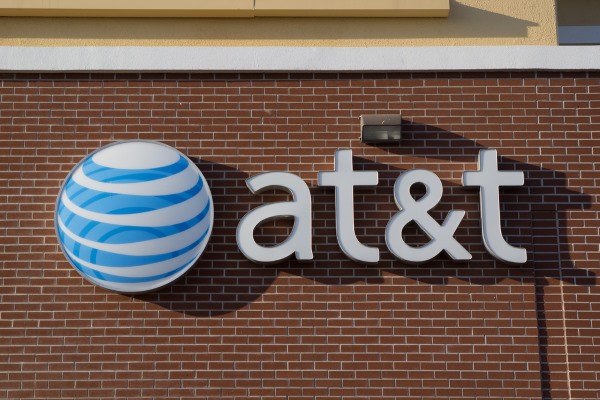
Apple and Microsoft are winning the PR game against the US government
Microsoft and Apple are battling the US government over the right to keep their users’ data safe, and according to a report by The New York Times, the American tech companies are winning.
At least they’re winning in the public relations game, as the general notion today is that those companies are doing everything they can to protect their users’ privacy.

Apple can't give real time iMessage data to the FBI because texts are encrypted
Despite a court order instructing the company to hand over text conversations between iMessage accounts to the FBI, Apple says that its own encryption system means it cannot do so. The Justice Department obtained a court order that required Apple to provide real time access to text messages sent between suspects in an investigation involving guns and drugs.
Apple has responded by saying that the fact iMessage is encrypted means that it is simply not able to comply with the order. The stand-off between the US government and Apple could last for some time as neither side is willing -- or possibly able -- to back down.

Snowden: web restrictions are 'wrong in Russia, would be wrong anywhere'
Edward Snowden might be holed up in Russia, but that's not going to stop him from criticizing the country. While accepting the Norwegian Academy of Literature and Freedom of Expression’s Bjornson prize, the former NSA contractor used a speech to call Russia's attitude to internet freedom and homosexuality as "fundamentally wrong".
The US government has indicated that it has no intention of pardoning Snowden so he remains in exile -- for now, this is in Russia. Not shy to court controversy -- and possibly biting the hand that feeds -- he has hit out at the Russian government saying that its control and restrictions it places on the web are a "mistake in policy".

Stop Windows 10's keylogger from monitoring what you type, ink, and say
The 'keylogger' that's built into Windows 10 has gained something of a bad reputation -- but it's really a bit of a misnomer. Yes, there is a component that -- technically speaking -- tracks what you input using the keyboard, screen, mouse, voice, and stylus... but it's a bit more complicated than that. It is not really a keylogger in the sense that the malware term usually implies.
Microsoft openly admits that "when you interact with your Windows device by speaking, writing (handwriting), or typing, Microsoft collects speech, inking, and typing information". It's done with the intention of improving the accuracy of suggestions, providing a personalized experience, and so on. But we live in an age where privacy matters. If you are concerned about the privacy implications of this component of Windows 10, you can disable it. Here's how.

Spotify publishes new, clearer privacy policy following complaints
It's only a couple of weeks since Spotify last updated its privacy policy, but the wording was such that many users were upset at the access the company appeared to be asking for. The backlash was so bad that the company was forced to apologize and now it has gone a step further and published a new, reworded version of its policy.
Spotify again admits that the previous version of the privacy policy led to some "understandable confusion", before launching into plain English remodeling of the document. With a new policy that is now more intelligible, the company will no doubt be hoping to claw back those users who were driven away.

Snowden: Hilary Clinton's personal email server likely exposed sensitive national intelligence
If anyone else at the State Department made use of a personal email server to discuss sensitive information, they would have been fired and prosecuted, says Edward Snowden in a scathing attack on Hilary Clinton.
The former NSA worker hit out at the Democratic presidential candidate in an interview with Al Jazeera. He said that Clinton was probably aware that using a personal email address had exposed sensitive national intelligence, describing it as 'a problem'.

Amid Windows 10 controversy, Microsoft quietly releases privacy botching features to Windows 7 and 8
It's been roughly a month since the release of Windows 10, Microsoft's newest desktop operating system. It packs in several enticing features including the digital assistant Cortana. But despite all the interesting offerings, Windows 10 isn't sitting well with many. Privacy advocates have criticized Microsoft for introducing several features that are seemingly concerning to those who care about their privacy. To make things worse, the company has now rolled out some of these annoying features to Windows 7 and Windows 8.
First spotted by Ghacks, some of the recent updates that Microsoft rolled out to Windows 8 and Windows 7 set a computer to regularly send reports of a machine's activities to Microsoft. The update dubbed 3068708, for instance, introduces the Diagnostics and Telemetry tracking service on the computers it is installed on. "By applying this service, you can add benefits from the latest version of Windows to systems that have not yet upgraded. The update also supports applications that are subscribed to Visual Studio Application Insights", Microsoft describes the purpose of the update.

Browsers and privacy: Pay attention to what you search for
Internet browsers are like sports teams. Every IT department and individual has an opinion on which one is the best, and personal preferences often comes down to long standing allegiances.
In the browser’s case, this is due to personal preference or ease of IT administration. Search privacy is not always top of the agenda, but should it be?

AT&T accused of injecting ads through its free Wi-Fi hotspots
What price is free? In the case of Windows 10, many argue that it means giving up a little of your privacy, and it seems that AT&T's free Wi-Fi hotspots also come with a hidden payload. Whilst visiting Dulles Airport, computer scientist Jonathan Mayer noticed that "the web had sprouted ads. Lots of them, in places they didn’t belong".
With time to kill waiting for a flight, Mayer set about investigating where these extra ads were coming from. It didn’t take long for him to discover that the AT&T hotspot he was connected to was the problem. He found that the hotspot was injecting a stylesheet which in turn pulled in advertising. But it didn’t end there...

Millennials lose trust in the digital economy
Although millennials are the first fully connected generation, having lived their whole lives in the Internet era, new research suggests that they're beginning to recognize that their identity and personal data may not be properly protected.
Digital identity specialist Intercede surveyed around 2,000 16-35 year-olds in the US and UK to get their views on current security measures. The results suggest what the company calls a 'millennial malaise' towards existing safeguards, in particular the use of easily-hackable but widely used password-based authentication methods.

Ad-blocker Crystal massively reduces bandwidth usage and page load times in iOS 9
There's a lot to look forward to in iOS 9. We already know that the new version of Safari will include the option to block ads, but the browser is not going to be alone in clearing out unwanted ads. Crystal is an ad blocker for iOS 9 created "with the goal of making web browsing with the iPhone and iPad a great experience again".
It started life as a tool for testing iOS 9's own content blocker, but grew into a stand-alone project. Crystal is currently in closed public beta but its developer, Dean Murphy, has released some figures that show how effective it is. The results show that Crystal can speed up page load times by nearly four times and reduce bandwidth consumption by 53 percent. Impressive stuff, and the stats make for extremely interesting reading -- particularly for those waiting for the launch of a new iPhone.

Censoring transparency: Twitter denies Politwoops access to API
Twitter has blocked Politwoops from using its API, effectively killing the service that archived and published tweets deleted by politicians. Politwoops has a number of international sites, each concerned with the politicians of different countries and it monitored the account of prominent politicians for deleted tweets before publishing them for all to see.
The US version of the service was denied API access earlier in the year, but over the weekend Twitter extended the ban to a further 30 Politwoops accounts. The tweets deleted by those in politics are often far more telling and revealing than those that remain in place, and this was the reason for Politwoops existence. Not for the first time, Twitter has entered the political arena, indicating that it views the deletion decisions of elected politicians as more important than the right of the electorate to see tweets that have been self-censored.

Paranoid torrent sites ban Windows 10 over privacy concerns
Since the launch of Windows 10, there have been all manner of privacy concerns -- some grounded in fact, others less so. Whatever your view of the latest version of Windows, it's impossible to deny that this has proved one of the more controversial releases to come from the Microsoft stable.
Getting in on the paranoia now are torrent sites, with some coming out and saying they have implemented a ban on the use of Windows 10 to connect to their trackers. Seemingly in response to the news that Windows 10 could disable counterfeit games, torrent sites including iTS have already put measures in place to block Windows 10 users from accessing them, while the likes of FSC and BB are considering taking similar action. Over-reaction?

Spotify says sorry for confusion over its privacy policy
We reported earlier today that streaming music service Spotify had upset a lot of users with changes to its privacy policy. In particular sections concerning what information the company is allowed to collect have sent some users into a spin.
Evidently stung by the reaction, Spotify has been quick to respond. In a blog post by CEO Daniel Ek it says sorry and explains more about what the changes actually mean.

New Spotify privacy policy angers users and drives some away
Spotify has updated its privacy policy, and a lot of users are now very unhappy. The change was prefaced a few days ago on the Spotify blog and the new policy started to roll out on 19 August. As it starts to hit accounts around the world, users are sitting up and paying attention; many are not happy with what they see.
What are people so upset about? Spotify might now access your Facebook likes and posts, photos and contacts you have stored on your phone, and even the speed at which you are traveling. The company says that the changes have been made as part of a move to "be as open and transparent as possible", but it has left large number of users questioning motives, and many have been pushed to quitting the music service completely.
